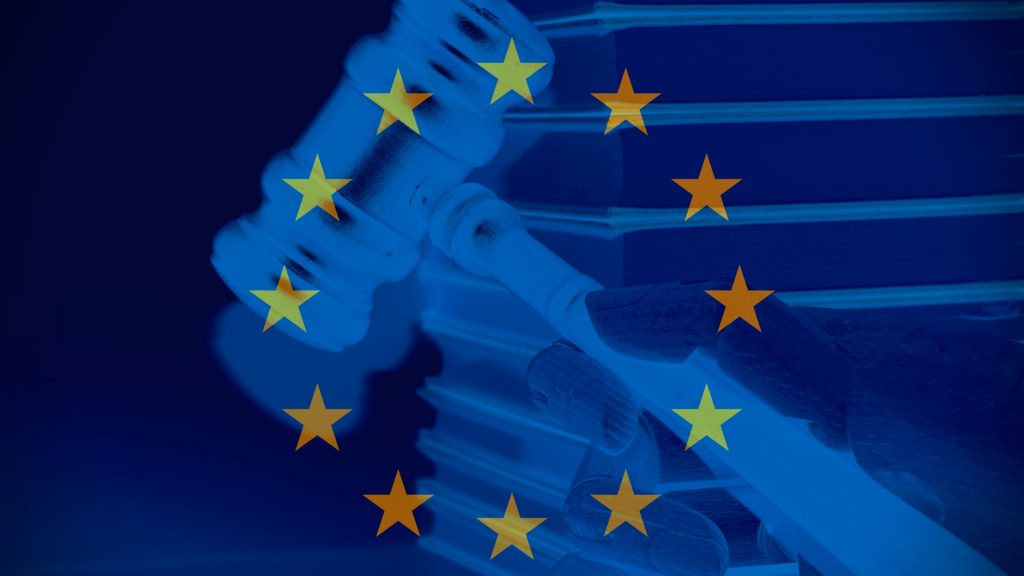
Last Wednesday, the European Union’s (EU) top tech regulator announced plans to propose new targeted amendments to the Europe AI regulations, the AI Act, arguing that the fast-paced market changes and legal ambiguities created a need to adjust the legislation, only a year after its passage, according to Euronews.
EU Tech Chief, Margrethe Vestager, addressed the proposed changes as, not a fundamental overhaul, but an intended delivery of “legal certainty” for developers and deployers of AI systems.
The European Commission is set to present a “digital simplification package” initiative, to lighten administrative burdens on companies, but the “targeted amendments” to the AI Act clarification changes.
AI Act Implementation
Tech Commissioner for Tech Sovereignty, Security and Democracy, Henna Virkkunen, told Euronews the EU AI governance pressure created by delays in developing key technical standards as he was talking to Euronews.
“The next important part [of the AI Act entering into force] will be next August. And there we are really facing challenges because we don’t have the [technical] standards yet,” she said. She added that the Commission is exploring “how we can support our industries when we don’t have the standards in place.”
Last year, the EU AI policy was implemented in stages, and since then, has faced criticism from Big Tech companies and from the Trump administration, arguing the rules risk suppressing innovation.
After the pressure from European Tech companies, and governments alike, mostly Americans, it was contended the current EU AI Act rules are already outpaces by the technology they seek to govern.
According to Virkkunen, the Commission remains “very committed to the main principles [of the law],” she declined to say whether the upcoming amendments would include a formal pause of key provisions.
A similar AI conformity assessment calculation is taking place within the broader Digital Omnibus package, which also proposes revisions to EU data policy and cybersecurity rules. Drafts circulating in Brussels suggest the reforms could include a one-year grace period meaning penalties for misuse would not be enforced until August 2027. Yet the Commission has insisted it is “not giving in to any external pressure.”
Human rights officials remain wary of EU AI governance frameworks.
Michael O’Flaherty of the Council of Europe stated that, “Let’s be very careful not to discard the [laws’] core protective elements.” He added: “Let’s not give in to the very heavy tech lobby to make life less onerous for tech and, as a result, more risky for us.”
EU AI Act Legality, Delays, and Centralization
Within the EU AI Act amendments, sharp divisions persist over how far the reforms should go. Denmark is calling for “genuine simplification” of the digital rulebook. Germany has warned against altering the law’s “structure or objectives,” while the Netherlands argues that enforcement clarity is more important than deadline extensions.
“Clarity about what is needed to comply with the AI Act is of utmost importance,” a Dutch spokesperson said.
With EU AI regulations standardization of the tech sector, it is creating pressure.
Earlier this year, more than 40 European CEOs urged a “two-year clock-stop,” and by July 2025, 56 EU based AI companies including Mistral AI and Aleph Alpha called for broader simplification. Yet Germany’s ZVEI argued the draft “fails to address core structural problems.”
One of the most contentious points is a potential delay in enforcing high risk EU AI rules, driven by slow progress on standard setting. Germany argued a delay “would allow sufficient time for the practical application of European standards,” while civil society groups strongly objected.
“Postponing enforcement is an unsatisfactory answer,” said Laura Cabrera of the Center for Democracy and Technology.
Another major debate focuses on strengthening the Europe AI regulations and the AI Office, which could gain new powers to oversee all General-Purpose AI (GPAI) based systems and conduct conformity assessments. Supporters of AI GPAI rules see it as a necessary modernization, while critics warn it risks concentrating too much authority in a body viewed as insufficiently independent.
Civil society organizations argue that the entire reform push risks to become deregulation disguised as simplification. “This is a clear push to dismantle digital rights and fundamental protections,” said AlgorithmWatch.
More than 120 groups have warned the Digital Omnibus represents the “biggest rollback of digital rights in EU history.”
Green MEP Alexandra Geese echoed those concerns, highlighting how “it weakens transparency, delays enforcement, and extends exemptions… while giving dominant US firms a freer hand.”
Once the Europe AI regulations are formally proposed, the package will need approval from EU Member States and the European Parliament setting up one of the bloc’s most consequential digital battles within the AI Act compliance yet.
Inside Telecom provides you with an extensive list of content covering all aspects of the tech industry. Keep an eye on our Intelligent Tech sections to stay informed and up-to-date with our daily articles.